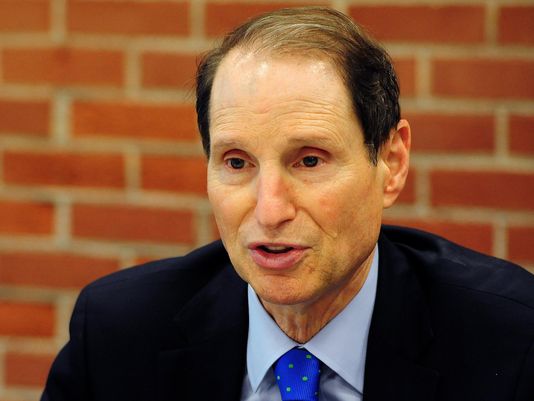
WASHINGTON — When he first started working in Oregon’s child welfare system fresh out of college in 2002, Charles Nyby learned to avoid telling people what he did for a living.
“I found that many people didn’t have faith in the child welfare system,” Nyby testified Tuesday before the Senate Finance Committee. “They didn’t feel like it worked.”
More than a decade later, Nyby said the Oregon system has changed to emphasize trying to keep families together and using foster care as a last resort.
“I’ve seen significant impact on things in child welfare I truly never thought possible,” said Nyby, who works in the state’s Child Welfare Program. “Caseworkers have become helpers rather than just investigators.”
Keeping that transformation going, and continuing to reduce the number of children sent to group homes, was the focus of the hearing, co-chaired by Sen. Ron Wyden, D-Ore.
Wyden said he plans to introduce a bill Wednesday that would expand on previous legislation he authored that allows children to stay with relatives instead of being put into group homes.
The bill, called The Family Stability and Kinship Care Act, would change the nation’s federal child welfare funding structure to focus more on front-end, preventive support services. Now, most federal child welfare spending is on foster care.
“The old two-option system, basically saying foster care or nothing, doesn’t cut it,” Wyden said.
Nationwide, the number of children in foster care dropped by nearly one-fourth between 2002 and 2012 to about 397,000, according to the Department of Health and Human Services. In Oregon, 7,599 children were in foster care on Sept. 30, 2014, a decline of 8.5 percent from the previous year. Of that total, 5,946 were in family foster care and 40 percent of those were with relatives.
Nyby said he saw improvement when Oregon went to a “differential response” model that allowed caseworkers to tap into a variety of services – including parent training, mental health care, and addiction/recovery peer support to help keep the family together.
He testified that changes are needed to the way child welfare systems are funded.
“I understand that working for child welfare will always be a challenging job . . . but it comes with great reward when we can be successful,” Nyby said.
- Publish my comments...
- 0 Comments
